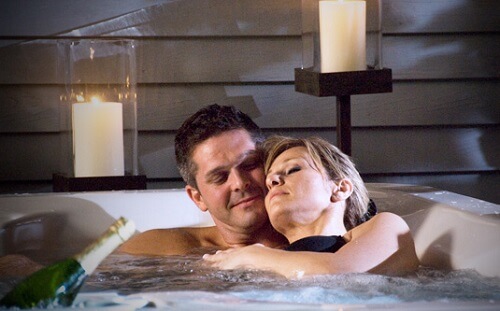How do you recognize you are cherished?
How do you know you are loved? No, that’s not such a silly question. Love is very abstract. Someone can say “I love you” but how do you recognize it is true?
Let’s start with the example of happiness. Happiness too is rather abstract. How you do you know you are experiencing happiness instead of, say, fear or depression? It’s not just a theoretical question. Something you experience tells you it’s happiness that is where you are! Most people would say there is a warmth, relaxedness, a lightness in the head and chest, an energy that feels good and an outgoing feeling that embraces most of the current experience without flinching or censorship.
But then what’s a “good energy feeling”? Note that all these references for happiness are feelings. You experience something that you know means you are happy.
Try to figure out for yourself what you experience that tells you that you’re are happy! You can begin to comprehend how we create and structure our own reality, how we choose what is right or wrong for us, what is good or bad for us, what is pleasant and unpleasant for us, and so on. This is an important lesson.
Now, to return to the main question of this section: how do I know I am loved? What has to happen in the real universe for this sensation to cease being just an idea and become concrete reality for you? This is obviously a very important question for anyone alive. Yet it is one that most people have never even considered.
The necessary internal signaling-structure varies greatly. For some, it’s a certain way of touching or feeling; for others it’s the words – what is being said, or the way it is being said (the sound of the voice); yet another group responds to gestures, posture or emotions (all related). Of course this is all mixed up with eroticism and biology – nothing wrong with that.
It is still crucial to feeling fulfilled in love that we get what we want; not just what someone else wants to give us. See the difference?
It is vital to share our love signaling language with each other and take on board what our beloved partner is asking for. If not, you face the rather sad situation of him saying repeatedly “I love you”, yet she isn’t listening or responding because, for her, that isn’t the critical signal that moves her. Maybe she is longing to be touched in a certain way or a certain place. But he doesn’t know that, so he isn’t giving her what she wants. So both partners flounder around and feel frustrated. They may even begin to feel “this relationship isn’t working”.
But all it means is that they are not both speaking the same “language of love”!
That’s relatively easy and great fun to put right!
Learning Another’s Love Language
For a feast of delight, do the following: in bed, in the jacuzzi or sauna, any place where you can respond at once in the manner desired…

Both read or have read this piece. Make sure you are each clear about your own message box: how do you know you are loved? What gives you that ever-so-special feeling? Tell your loved one and have him or her do it to/for you until you are sure they have it right. Discover their magic secret in turn and reciprocate.
If you get it right you will both melt into each others’ arms in a frenzy of delight. Those of you who saw the movie A Fish Called Wanda will remember the scene where John Cleese’s character is talking to Jamie Lee Curtis’ character in Russian. The effect of his spoken accent on her is devastating, she falls apart morally and mentally and is ravening for his caress; yet the man doesn’t even notice he’s thrilling her body and soul. We don’t share that signal and so we laugh; that’s the joke. But it is her representation of love and it is a good example of what is meant.
If you think you’ve got it, list your personal representations of feeling loved. These feelings or signals are unlikely to change much over a lifetime, so it’s important!
Note 1:
Note that you are not asking the person to like you any more or less, or differently. You are just asking him or her to do something that makes you feel hugely loved. This goes from him or her, to you. It could even seem like a chore for your partner but if they are loving and sincere, he or she will not show it and deliver the goods for you. In the end, the reward is what comes back from the other person, when he or she has been melted into the floor.
By the same logic, if you are representing for another person, you may not feel comfortable that this is the way you personally would choose to show your affection. But you must grasp that he or she may not respond well to what you choose to give out. For better strategies in life we need to change our maps, remember? This is an important shift from your viewpoint to your partner’s and you will find it incredibly rewarding.
Get a better map. Indeed, draw up the map for your lover’s heart territory, maybe for the first time.
Note 2:
This is not the same list as “What turns you on”, despite the film example above. There is nothing wrong in being clear with your partner what these arousal reactions are, however. If you haven’t addressed the issue together before, it’s time you did. Making love without such a list is like driving a car without knowing the Highway Code.
Finally, A Book I Recommend
It’s a gushering, almost threatening book, which uses language and metaphors that may be unfamiliar to you. Its title is DESIRE, which some people are taught is naughty. But it is an exciting and honest book and touches on longing and desire in a frank and open way. It has rightly attracted a lot of positive reviews and admiration.
You can get your copy by clicking here!

I actually met the author, Dr. Saida Désilets at a spiritual workshop in Vancouver and we made an agreement then and there to work together, to open up more pathways for women to establish their own, true sovereignty. That means we’ll probably do a webinar or workshop together. But for now I’d like you to know about her book and bring its racy, pacy message into your life!
Dr. Saida Désilets wants to live in a world filled with audacious, sexually sovereign people, living life on their own terms.
Well, I’m all for that, as you can see from my notes on The Language Of Love! Let’s have fun.
The post The Language Of Love appeared first on Dr. Keith Scott-Mumby.
